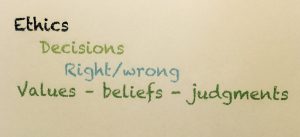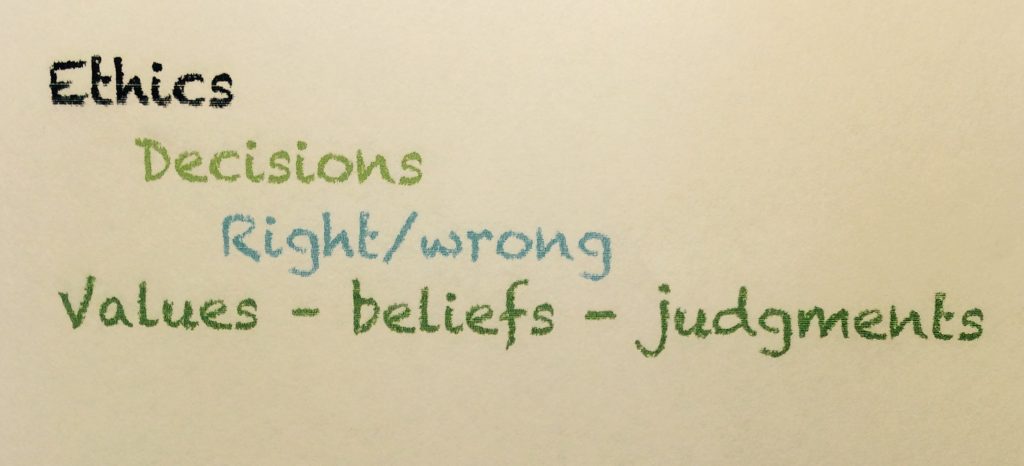 Who is responsible for teaching ethics to students of all ages? Should they be taught and reinforced in schools or should parents alone have the responsibility?
Who is responsible for teaching ethics to students of all ages? Should they be taught and reinforced in schools or should parents alone have the responsibility?
Ethics are standards and rules that determine how people make decisions. They govern the thought process so when a person is faced with a problem, ethics assist in the decision-making process. About 2500 years ago, Socrates took the position that ethics consists of knowledge that can be taught. Today, most phychologists agree with Socrates that ethics can be taught.
They provide a base line for understanding right and wrong. However, situations change over years, with age and with society. Ethics act as a mediator when being introduced to various situations and new people.
Our ethics are passed on to children and the people that are involved in our lives. Through our actions, we are a model for the people around us.
Ethics are mostly learned at home, but teaching ethics in school can be a source of controversy. Teaching ethics is simply facilitating students in the thinking process to understand consequences and to make tough choices. Doing the right thing is what it’s about – what is fair, could it hurt anyone, how would it feel it were me.
Too many educational institutions focus on inappropriate or bad behavior rather than placing the focus on good and ethical behaviors. Building solid ethical behaviors begin with young children learning to:
• respect others,
• being honest,
• exercise self-discipline and
• show compassion.
Schools get diverted from teaching and reinforcing ethical behavior because of budget constraints and by placing the focus on standardized tests. Schools must make character development a priority. If relevance is not placed on ethics in our schools, students will not see its significance. Learning ethics is a life-long process. In elementary school, students must learn compassion in order to sympathize with people in need, people dealing with sickness, or people dealing with death.
In this age or technology, ethical decision-making should be a 21st century skill. With advancing technologies, now more than ever ethics, including cyber ethics, should be integrated into students’ education.
Having students involved in learning activities that develop ethical behavior is empowering. It’s important to help people and to understand the difference between helping and hurting. Be a part of creating a community of trust with people of varying talents by teaching and learning ethical behavior at home, in school, and with community activities. A fundamental value is respect for each other and the individual differences of people. Today’s student is tomorrow’s business leader.



